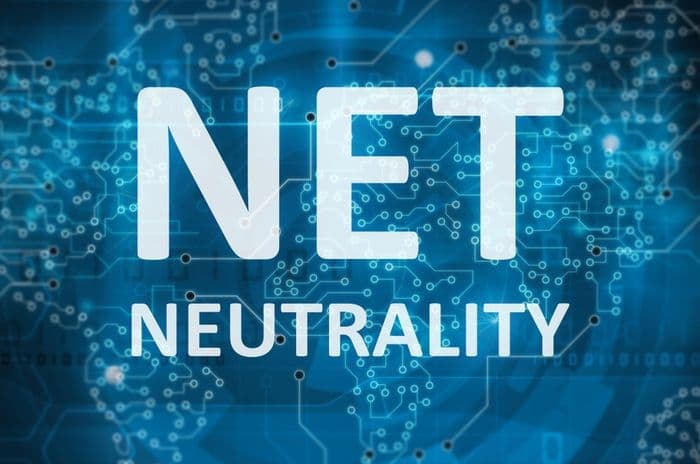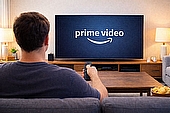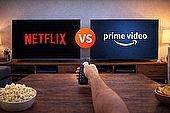Home > Broadband > News > Could paid content delivery end net neutrality?
Could paid content delivery end net neutrality?

Supporters of net neutrality vocally oppose the introduction of paid content delivery on the web, arguing that the move is the first step toward the creation of a 'multi-tier internet' in which only the biggest content providers could pay out to reach consumers in higher quality.
Are they right?
Net neutrality or multi-tier internet?
While most people understand the principle of net neutrality - that internet service providers (ISPs) should treat all internet traffic equally regardless of source, destination or content type - the idea of a multi-tier web could do with further jargon exploding.
A multi-tier web would give ISPs the opportunity to deliver content at different levels of service depending on how much has been paid by, potentially, both creator and viewer.
The delivery of content and traffic which earns broadband providers money would be prioritised over traffic on which providers made less or no money.
So far, so simple.
However, it is not known what effect this could have and whether it would result in unpaid content being buried or slowed down significantly.
The end of the neutral net?
Broadband providers are looking to create extra revenue and make savings in the face of rising costs, thanks mainly to the boom in the popularity of on-demand video and streaming services.
It will cost billions of pounds in investment for operators to expand their infrastructure, billions which will cut into already dwindling profits.
It almost goes without saying that businesses are unwilling to stump up for the network and net neutrality campaigners are unlikely to be best pleased at plans to raise extra revenue.
One area in which they see room for expansion is getting content suppliers to cough up, if they want their creations to be prioritised over other web traffic.
Mobile broadband providers across Europe have suggested that companies like Google and Apple should shoulder some of the cost for their networks.
In March 2011, for example, commentators suggested that the rise of the iPad could lead networks to start charging by device.
The mobile broadband network is already creaking under the weight of hundreds more GBs a day being consumed on internet hungry smartphones and iPads.
Potentially, mobile broadband operators could block big sites for refusing to pay up or negotiate exclusive deals for their customers to access popular services using their networks.
Nothing new, say EU
A recent EU net neutrality summit concluded that internet access was generally open, and that where differences did exist, competition between broadband providers was strong enough for consumers to be able to switch.
If however only one operator can provide consumers with, say, Facebook, that principle is going to look seriously undermined.
Ed Vaizey, the Communications Minister, said recently that he would intervene if operators didn't provide consumers with an adequate service:
"I'm all in favour of innovation [online] providing it's not detrimental to consumers.
"People are already entitled to choose the speed of their connection but we're not saying one ISP should be able to prioritise one provider's content over another and I don't support the commercial decision to downgrade a rival's site."
BT's neutrality abuse
BT found itself in the stormy waters of the net neutrality debate by announcing the launch of a service which allows broadband providers to deliver video faster across their networks.
The telecoms giant's wholesale division has developed a product called BT Content Connect which gives broadband providers the option to store bandwidth hungry content like on-demand video on servers physically closer to the customer, increasing the quality of the service.
BT says the service will help ease network congestion at peak times and lift speeds on other parts of the broadband network.
A spokesperson for BT said: "BT supports the concept of net neutrality, but believes that service providers should also be free to strike commercial deals, should content owners want a higher quality or assured service delivery.
"Content Connect gives the opportunity for the ISPs to have a commercial relationship with the content service providers."
A neutered net
Campaigners highlight services such as these as potentially leading to abuses of net neutrality.
"We are talking about ISPs competing with the Internet for content delivery," said Jim Killock Executive Director of the Open Rights Group.
"The result could be a fundamental shift away from buying services from the Internet to bundled services from ISPs: which would reduce competition and take investment away from Internet companies. That would be bad for everyone."
BT reacted to these accusations by saying that its Content Connect service "will not create a two-tier Internet" and instead will "simply offer service providers the option of differentiating their broadband offering through enhanced content delivery".
Two-tier internet in action already?
However, all this talk may be a case of closing the door after the horse has bolted.
According to some reports, BT is already being paid by the BBC to deliver iPlayer content although this flies in the face of previous noises coming from the broadcaster.
It could be however that these reports point to BT's delivery of iPlayer across its own BT Vision platform which uses a customer's broadband connection to deliver multi-channel TV services.
Last year the BBC suggested it would never consider paying to have content delivered and would be setting up a system to warn iPlayer users if their broadband provider was deliberately slowing down their internet connection.
YouView if you want to...
Amid all the arguments one voice seems to shed some more light upon the purpose of Content Connect: YouView.
YouView set top boxes will combine Freeview and on-demand services with programme guides going back 7 days as well as forward.
YouView is aiming to launch this year, although it has been plagued by development delays and in the meantime, a myriad of products, set-top boxes and internet connected televisions have moved in to do exactly what YouView sets out to do.
The potential bandwidth demand of a service such as YouView will be massive and products such as Content Connect seek to mitigate any bottlenecks.
However, it's up to individual broadband providers to decide how they use Content Connect.
Last year, TalkTalk and BT, both financial contributors to the YouView project, said it would be "perfectly normal business practice to discriminate" between services.
Campaigners hope this isn't the beginning of a trend towards the steady gnawing away of basic net neutrality principles.

We are independent of all of the products and services we compare.

We order our comparison tables by price or feature and never by referral revenue.

We donate at least 5% of our profits to charity, and we aim to be climate positive.
Latest News

18 February 2026
Virgin Media O2 owners to buy Netomnia parent in £2bn deal
18 February 2026
HBO Max UK launch confirmed for March
13 February 2026
Sky TV bundles Netflix, Disney+, HBO Max and hayuReceive consumer updates that matter in our newsletter


